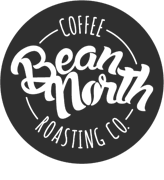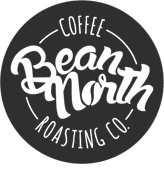Fair Trade FAQ
It's Fair Trade
As a leading source of income in the coffee growing regions and a highly valued commodity, coffee can be a powerful tool to bring about positive change for small farmers, the environment, and our health. If coffee drinkers want to drink coffee as cheaply as possible, growers must be paid below market value for their green beans so that the middleman can turn a profit at each step from the field to the commodities markets to the table. Bean North offers farmers an alternative … a fair price - a price above market value, including added premiums for community development - for the coffee they grow.
It's Pesticide Free
After tobacco, cotton and coffee are the second and third most chemically treated crops. Both are sprayed with pesticides, herbicides, and fungicides. These chemicals are health and environmental hazards that affect not only the growers, their families, and the land and water, but also us – the consumer. Bean North only purchases organic coffees. Organic agriculture focuses on building healthy soil. Through composting, intercropping (shade trees - good for the birds!) and natural pest controls, a whole system of compatible, sustainable agriculture is used to grow healthier crops.
It's Grown by Stewards of the Land
Our fair trade practices focus on small scale farmers who in our mind are the best stewards of the land. These farmers grow their coffee under the forest canopy. This involves planting a mixture of nitrogen-fixing trees with other useful species to provide shade. Shade trees protect the coffee plants from rain and sun, help maintain soil quality, reduce the need for weeding, and aid in pest control. They also provide extra income and are an additional food source for the farmers. Sustainability is of great concern to the farmers and their families, cooperatively they will make a difference.
Fair Trade FAQ
What is fair trade? Fair trade is a system of exchange that seeks to create greater equity and partnership in international trading system by:
~ Paying fair wages in local context;
~ Supporting participatory workplaces;
~ Ensuring environmental sustainability;
~ Supplying financial and technical support;
~ Offering public accountability;
~ Respecting cultural identity;
~ Building direct and long-term relationships; and,
~ Educating consumers.
By approaching development as a whole process (rather than just a fair price), Bean North and Cooperative Coffees cultivate partnerships with their suppliers and contribute to the development of communities. Fair trade is not about charity; it uses a fairer system of exchange to empower producers and to create sustainable, positive change.
What does that really mean?
Fair trade is about keeping prices affordable for consumers while returning a higher amount to the producers. This relationship is possible because Bean North works directly with our producer partners (farmers & their cooperatives). By cutting out the middle men – who increase the price at each level – retail products remain competitively priced in respect to their conventional counterparts, while more fairly compensating producers. Fair trade makes a tremendous impact on communities. Children’s school fees are paid; nutritional needs are met; health care costs are covered; the poor, especially women, are empowered; the environmental impact of production, sourcing, and transport is mitigated to the fullest extent possible. Such an impact is created, because fair trade approaches development as a holistic process.
Does fair trade make a difference?
We've seen tremendous change in the producer communities we've worked with in the past 20 years. Schools are built, wells constructed, children attend school, and other signs clearly indicate that the income generated by the fair trade premiums positively resonate in a community. In intangible ways, one can note the impact of fair trade, as well. Cultural techniques are revived; women become valued members of their societies; alternative production methods preserve biodiversity; small and medium sized enterprises in the developing world increase their capacity. Through this and other evidence we know that lives have been positively changed, because of our fair trade practices.
How does one know if a particular product or business is fair trade?
There are two types of organizations involved in fair trade. Some certify specific commodities, regardless of to whom they are sold; others screen organizations for their full commitment to fair trade, regardless of what products they sell. Member organizations of the Fair Trade Federation usually display the FTF logo on their business materials, are listed on the FTF website, and may have the words “Member of the Fair Trade Federation” on their products. The Fairtrade Labelling Organization and its North American affiliates, TransFair USA and TransFair Canada, allow their label on the products they have certified.
Fair Trade Myths
As awareness of fair trade grows, so do many misconceptions about fair trade. Below are some popular myths about fair trade and the realities behind them.
Myth: Fair Trade is about paying developed world wages in the developing world.
Reality: Fair wages are determined by a number of factors, including the amount of time, skill, and effort involved in production, minimum and living wages in the local context, the purchasing power in a community or area, and other costs of living in the local context. Wages are determined independently from North American wage structures and are designed to provide fair compensation based on the true cost of production.
Myth: Fair Trade siphons off American jobs to other countries.
Reality: Fair trade seeks to change the lives of the poorest of the poor who frequently lack alternative sources of income. As North American fair trade organizations grow, they employ more and more individuals in their communities. Most fair trade craft products stem from cultures and traditions which are not represented in North American production. Most fair trade commodities, such as coffee and cocoa, do not have North American-based alternatives.
Myth: Fair Trade is anti-globalization.
Reality: International exchange lies at the heart of fair trade. Fair trade organizations seek to maximize the positive elements of globalization that connect people, communities, and cultures through products and ideas. At the same time, they seek to minimize the negative elements that result in lower labor, social, and environmental standards and which hide the true costs of production.
Myth: Fair Trade is a form of charity.
Reality: Fair trade promotes positive and long-term change through trade-based relationships which seek to empower producers to meet their own needs. Its success depends on independent, successfully-run organizations and businesses – not on handouts. While many fair trade organizations support charitable projects on top of their work in trade, the exchange of goods remains the key element of their work.
Myth: Fair Trade results in more expensive goods for the consumer.
Reality: Most fair trade products are competitively priced in relation to their conventional counterparts. Fair trade organizations work directly with producers, cutting out exploitative middlemen, so they can keep products affordable for consumers and return a greater percentage of the price to the producers.
Myth: Fair trade production results in substandard goods for the consumer as compared to conventional production.
Reality: While handmade products naturally include some variation, fair trade organizations continuously work with their producer partners to improve quality and consistency. Through direct and long-term relationships, producers and fair trade organizations dialogue about consumer needs and create high quality products. Fair traders have received awards at the international Cup of Excellence competitions, the New York Home Textile Show, and other venues.
Myth: Fair trade refers only to coffee.
Reality: Fair trade encompasses a wide variety of agricultural and handcrafted goods, including baskets, clothing, cotton, footballs, furniture, jewelry, rice, toys, and wine. While coffee was the first agricultural product to be certified fair trade in 1988, fair trade handicrafts have been on sale since 1946.
With files from the Fair Trade Federation


